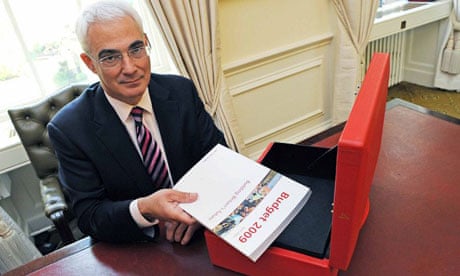For a long time, Alistair Darling was known as the living embodiment of that Westminster cliché, the "safe pair of hands".
Instantly recognisable thanks to his bushy eyebrows and white hair, his reputation was one of quiet efficiency – something that created a public perception of him as boring.
But with his refusal to be moved from the Treasury, despite Gordon Brown's apparent desire to replace him with his closest ally, Ed Balls, Darling may finally have shaken off that tag.
Darling proved he could get the job done with minimum fuss when he became transport secretary, succeeding Stephen Byers in the wake of the Jo Moore "good day to bury bad news" saga and the abrupt renationalisation of Railtrack.
While Darling's time as chancellor has been anything but quiet, with Britain falling into recession, it would be hugely unfair to lay the blame at his door.
He took over at the Treasury at a time of rising interest rates, an overheated housing market and huge consumer credit, although few could have predicted the scale of the economic downturn that would follow.
In many people's view, he has reacted quickly and decisively to the crises – particularly the struggles of British banks – after being handed a poisoned chalice by Brown, his predecessor as chancellor.
But the recent expenses furore saw Darling accused of "flipping" the designation of his main and second homes and claiming the cost of two properties at the same time, something prohibited by the parliamentary authorities and an allegation he has denied.
As the man responsible for the nation's finances, his oversights were viewed in a particularly bad light by the media, and the Lib Dems called for his head. With Brown struggling to save his own job, the prime minister was ready to sacrifice his old friend – with whom he spent much of the 90s in the shadow treasury team – and bring in Balls.
But with many Blairites aghast at the thought of Balls's elevation to the Treasury, Darling stood his ground and reportedly refused an offer of the post of home secretary – another poisoned chalice.
With three cabinet resignations in the past three days, Brown has been forced to back down.
And in standing up to him, Darling has proved that there is more to him than meets the eye.
